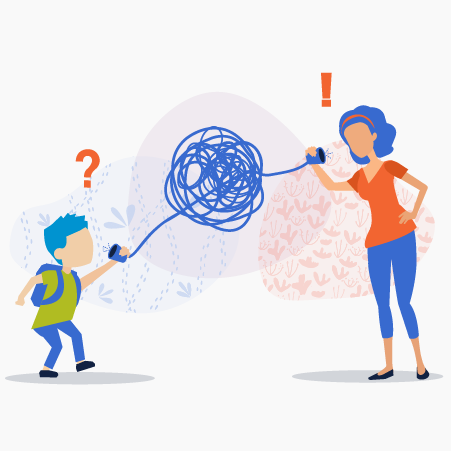21 Tips for Raising a Child With ADHD
 For a child with ADHD, consistency is vital. By using a supportive and structured approach, challenging behaviors can be limited, and the child can flourish. The following tips have been compiled to help parents reduce disruptive behaviors and deal with challenges related to ADHD.
For a child with ADHD, consistency is vital. By using a supportive and structured approach, challenging behaviors can be limited, and the child can flourish. The following tips have been compiled to help parents reduce disruptive behaviors and deal with challenges related to ADHD.
Tips for Parents and Caregivers
1. Keep it interesting
When a child with ADHD is doing a complex task, they are less likely to become distracted.
Many hobbies and jobs call for a high degree of focus, so if a child enjoys challenging activities and can focus while doing them, it is worth encouraging them to continue.
2. Give praise and encouragement
Good behavior should be reinforced with praise. It is just as important for children with ADHD to learn what behaviors are acceptable by receiving praise, as it is for them to learn what is unacceptable.
3. Provide structure
Providing structure with a daily schedule may limit sudden distractions. Knowing what to expect can be calming for children with ADHD. It can also be a good way to introduce responsibility into a child’s life.
4. Encourage exercise
Parents can encourage physical activity by providing active toys, such as balls and skipping ropes, teaching their child to ride a bike, or enrolling them in a team sport.
Children are also more likely to develop physically active habits if their parents are good role models in this area. Going on family hikes or playing outdoors together can help a child with ADHD expend excess energy and build healthful habits for the future.
5. Practice good sleep hygiene
Research has shown that low quality sleep can have a negative impact on ADHD symptoms. Good quality sleep can help to regulate energy levels the next day. It can also improve stress and mood.
To this end, parents may want to try and include regular bedtime hours into the structure of the day.
6. Break tasks down
For someone with ADHD, some tasks can feel too complex and off-putting. Where possible, break tasks into achievable goals. As well as simplifying the picture, this can regulate the emotions associated with succeeding or failing.
If a child has been asked to clean their room, for example, it may be helpful to break this into smaller tasks, such as making the bed, putting any toys on the floor back into storage, or folding their clothes.
7. Think out loud
Children with ADHD often lack impulse control. This means they may say or do something without thinking it through. Getting them to pause and say out loud what they are thinking can have several benefits.
It can allow the parent to learn their child’s thought patterns. It can also give the child time to consider their thought, and whether or not to act on it.
8. Keep distractions to a minimum
If a child is easily distracted, it pays to keep their surroundings uncluttered. Depending on the child’s preferences, radios or televisions could be turned down or off.
Getting them to work on tasks away from the lure of TVs or games is important, and toys should be put away when they are doing something in their bedroom.
9. Explain rather than command
A parent or caregiver can give reasons for what they are asking, where it is age appropriate for the child. Keep it simple but expect to be asked to elaborate.
Explaining the reasons for doing a task can alleviate worry and confusion in a child with ADHD. When explaining things, a person should use positive and clear language.
Explaining the reasons for asking the child to do a task is also respectful, and self-respect is crucial if the child feels they may be different to others.
10. Introduce wait time
The idea behind wait time is similar to thinking out loud. If a child waits a few seconds before speaking or acting when they have a thought, they have time to consider if it is appropriate.
This will take a lot of practice, but it can be worth it, and it can give them a real advantage in their social life.
Excerpted from “Caring for a child with ADHD: 21 tips” in Medical News Today. Read the full article online for additional details on the above and the remaining 11 tips.
Source: Medical News Today | Caring for a child with ADHD: 21 tips, https://www.medicalnewstoday.com/articles/321621 | copyright 2021 Healthline Media
If you have concerns about your child or teen, CHC Care Coordinators can arrange a free 30-minute consultation so you can explore options with an expert. We invite you to call or email us at 650.688.3625 or careteam@chconline.org to set up an initial Parent Consultation appointment. CHC teletherapy services are available now.





